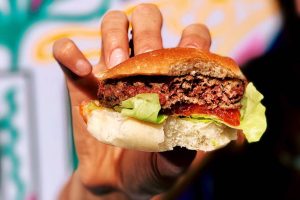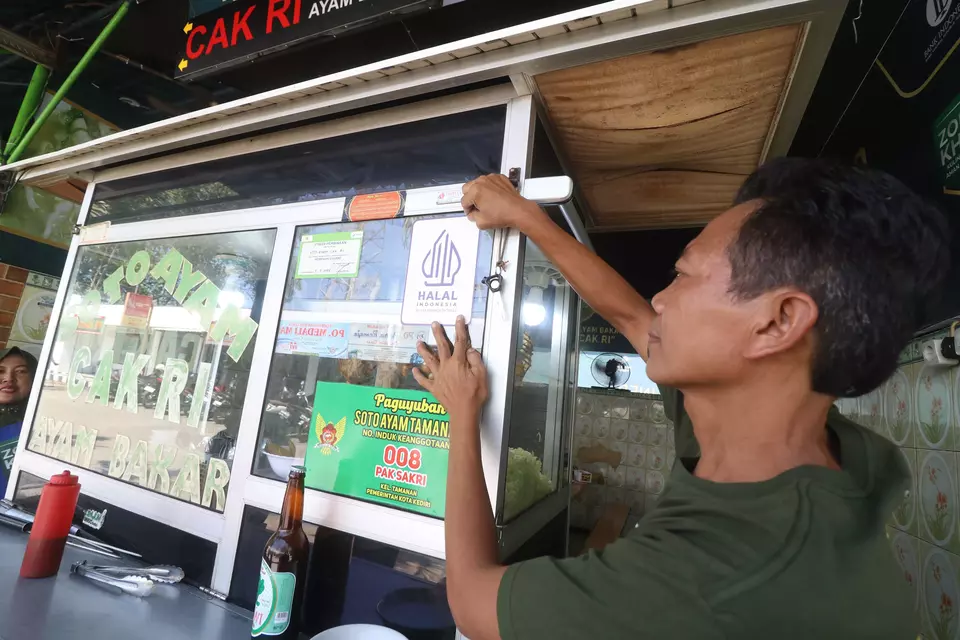By Carlo Versano – cheddar.com
 The Impossible Burger earned its Halal certification on Monday from the Islamic Food and Nutrition Council of America, marking a major milestone on the meat industry disruptor’s path to feeding the world.
The Impossible Burger earned its Halal certification on Monday from the Islamic Food and Nutrition Council of America, marking a major milestone on the meat industry disruptor’s path to feeding the world.
Beginning Dec. 11, New York City’s Royal Grill Halal will begin serving Impossible Foods’ plant-based meat. And soon the Impossible Burger will be available in grocery stores, too, for home chefs who want to try their hand at cooking the meatless burger.
The burger, which earned its kosher certification in May of this year, launched in 2011 and is available at 5,000 locations across the country. People tend to eat ground beef out of the home, according to David Lee, the COO and CFO of Impossible Foods, who spoke with Cheddar as part of Monday’s The Future of Food special report.
Lee told Cheddar that Impossible Foods initially “wanted to be in the hands of professional chefs.”
But the time is right to expand into retail, Lee explained, as meat replacement products gain traction with consumers. The Impossible Burger, the company’s flagship product, is well-suited to home cooking, as it can be easily customizable based on taste. “In the hands of a different chef, it’s a different burger,” Lee said.
The work of perfecting a plant-based burger ? or any plant-based protein, for that matter ? is good for the environment and good for business. Companies like Impossible Foods and Beyond Meat, which recently filed for its IPO, are addressing a potential $1.5 trillion meat industry ? one that is among the leading causes of greenhouse gas emissions that are warming the planet.
“We need a better solution” than factory farming, Lee said. But meat is so inherently “crave-able” that it’s been a huge challenge to get meat eaters to switch to something like the Impossible Burger.
Lee said the trends are changing, and the move into the grocery aisle will allow more people the chance to sample, and ideally convert.
“The vast majority of our consumers eat meat very frequently,” he said, which is why it’s critical that the product taste, look, and feel like the one it’s replacing (he revealed that the company is working on dairy, fish, and pork replacements, as well).
And because Impossible Foods uses a fraction of the resources needed to factory farm livestock, it can be cost-competitive to ground beef once it achieves scale.
“At that point, we intend to serve the world,” Lee said.
Interview with David Lee, the COO and CFO of Impossible Foods
https://cheddar.com/videos/can-the-impossible-burger-save-the-world



